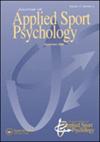Māori exercise professionals: Using Indigenous knowledge to connect the space between performance and wellbeing
IF 3.2
2区 心理学
Q2 HOSPITALITY, LEISURE, SPORT & TOURISM
引用次数: 0
Abstract
Abstract Indigenous voices and perspectives are necessary in advancing applied and global sport psychology. In Aotearoa New Zealand, Māori sport and exercise professionals are thriving despite existing systems that devalue, discriminate and exclude Māori from fulfilling their potential. This qualitative study investigated the perspectives of ten Māori sport and exercise experts including academics, allied health professionals, athletes, coaches and Māori healers in order to develop a critical understanding of their work related experiences and analyze the diverse forms of knowledge on which they draw. Participants-collaborators were interviewed using an insider research design to facilitate discussion about their current work. Results support a “space between” model and suggest that Māori sport and exercise work enables excellence in sport performance while also meeting holistic wellbeing needs of communities. Māori exercise professionals identified that their presence in their respective fields “speaks back” to racist practices and entrenched barriers that colonize Māori success. Further, applying holistic notions of wellbeing and ancestral knowledge to sport and exercise was seen as default and ordinary; shifting the illusion that sport and exercise operates in a culture-less, timeless and physical vacuum. From an applied and Indigenous perspective, these results emphasize that Indigenous sport leadership and practices are unequaled by Western methods and science alone. Māori exercise professionals demonstrate cultural innovation and intersectionality that not only revolutionizes sport, but brings with it essential community wellbeing. Lay summary: This article explores the experiences of ten Māori exercise professionals and analyses the diverse forms of knowledge they draw on in their work. The study provides insight into how Māori exercise professionals utilize their knowledge of social contexts and culture, in turn expanding the scope of sport and exercise psychology.Māori运动专业人士:利用本土知识连接表现和健康之间的空间
在推进应用和全球运动心理学中,土著的声音和观点是必要的。在新西兰奥特罗阿,尽管现有的制度贬低、歧视和排斥Māori体育和锻炼专业人士发挥潜力,但Māori体育和锻炼专业人士仍在蓬勃发展。这项定性研究调查了10位Māori运动和锻炼专家的观点,包括学者、联合健康专业人员、运动员、教练和Māori治疗师,以培养对他们工作相关经验的批判性理解,并分析他们所借鉴的各种形式的知识。参与者-合作者使用内部研究设计进行采访,以促进对他们当前工作的讨论。结果支持“空间之间”模型,并表明Māori运动和锻炼工作使运动表现卓越,同时也满足了社区的整体健康需求。Māori运动专业人士认为,他们在各自领域的存在“回应”了种族主义做法和阻碍Māori成功的根深蒂固的障碍。此外,将健康和祖先知识的整体概念应用于运动和锻炼被视为默认和普通的;改变人们的错觉,即体育和锻炼是在一种没有文化的、永恒的、物理真空中进行的。从应用和土著的角度来看,这些结果强调土著的体育领导和实践是西方方法和科学所无法比拟的。Māori运动专业人士展示了文化创新和交叉性,不仅彻底改变了体育运动,而且带来了必不可少的社区福祉。概要:本文探讨了十位Māori运动专业人士的经验,并分析了他们在工作中所利用的各种形式的知识。这项研究为Māori运动专业人士如何利用他们的社会背景和文化知识提供了见解,从而扩大了运动和运动心理学的范围。
本文章由计算机程序翻译,如有差异,请以英文原文为准。
求助全文
约1分钟内获得全文
求助全文
来源期刊
CiteScore
6.90
自引率
9.40%
发文量
39
审稿时长
>12 weeks
期刊介绍:
The Journal of Applied Sport Psychology (JASP) is a refereed journal designed to significantly advance thought, theory, and research on applied aspects of sport and exercise psychology. Submissions such as experimental studies, qualitative research, correlational studies, case studies, position papers, critical reviews, theoretical developments specific to applied research conducted in sport and/or exercise settings, or having significant applied implications to sport and exercise, are appropriate content for the JASP. Please see the recent Editorial for further details on the aims and scope of the journal. JASP is a non-proprietary journal that is an official publication of the Association for Applied Sport Psychology (AASP). The purpose of AASP is to promote the development of psychological theory, research, and intervention strategies in sport and exercise psychology. The Journal is a direct benefit of membership in AASP and is received by its student and professional members. The publisher of the JASP is Taylor and Francis, Inc. of Philadelphia, PA.

 求助内容:
求助内容: 应助结果提醒方式:
应助结果提醒方式:


